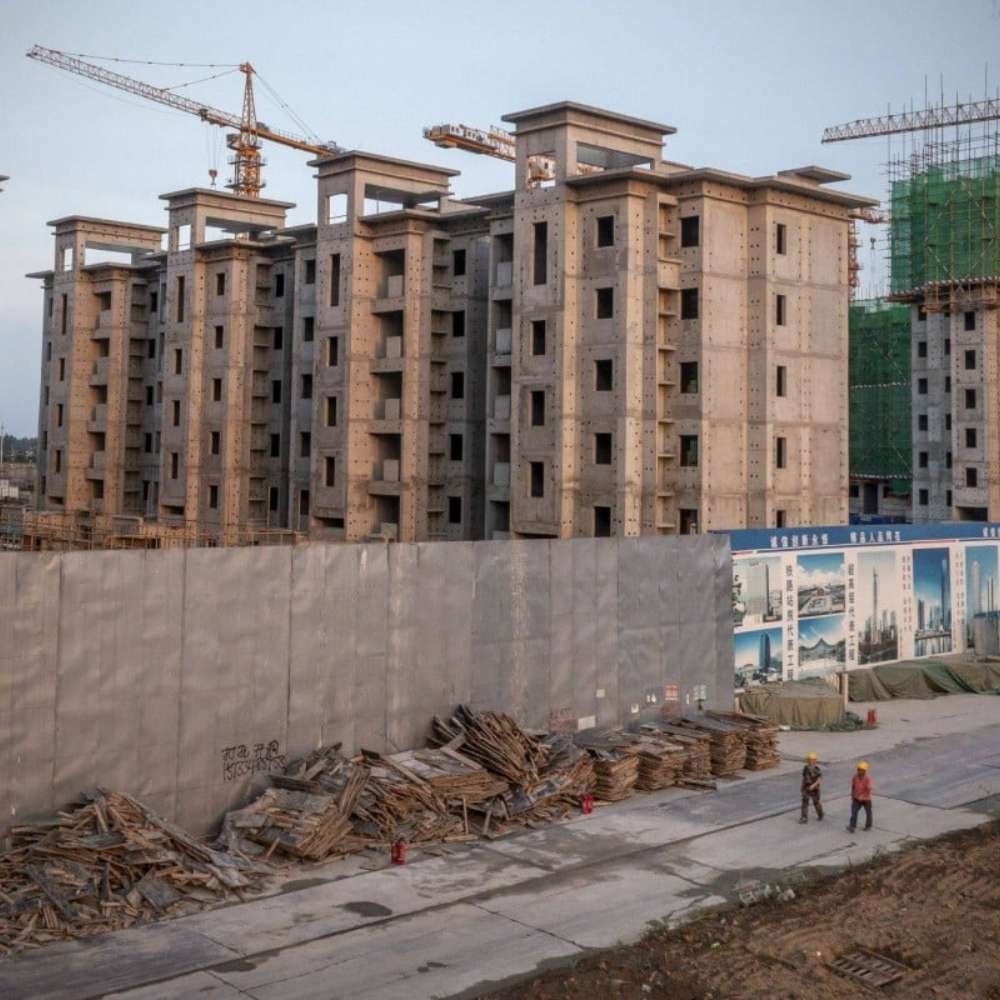Pledges Increased Lending
China has announced plans to expand its whitelist of real estate projects and expedite bank lending for unfinished developments, aiming to boost support to 4 trillion yuan (approximately $561.8 billion) by the end of this year. This declaration came from Ni Hong, the country’s Minister of Housing and Urban-Rural Development, during a press conference attended by officials from various financial sectors, including the central bank and the finance ministry.
A total of 2.23 trillion yuan in loans has already been allocated to whitelisted developers. This amount is set to nearly double, with projections indicating that 4 trillion yuan will be approved by the end of 2024, according to senior officials from the National Financial Regulatory Administration.
Whitelist Initiative Gains Momentum
Launched in January, the whitelist initiative allows local governments to recommend residential projects to banks for expedited lending. The primary goal is to ensure the completion of unfinished housing projects, enabling timely delivery to buyers. All commercial housing projects are now eligible for this initiative, as noted by Xiao Yuanqi, the vice minister of the regulatory administration. This broadening of eligibility is expected to have significant implications for the real estate sector.
Xiao emphasized that banks should promptly deploy funds, encouraging them to release loans in full to developers rather than in stages. This directive signals a stronger push toward revitalizing the construction and real estate markets, which have been under immense pressure.
Government Signals Commitment to Economic Recovery
The announcement is part of a broader series of government policy measures aimed at stimulating the economy. Some investors are interpreting these moves as indications that Beijing is finally prepared to take significant steps to revitalize the struggling property sector. However, despite these announcements, the Chinese CSI 300 real estate index fell over 5%, marking a sharp decline from previous gains of approximately 8.7% over the past three trading sessions.
In a related development, the Ministry of Finance announced that local governments will be permitted to issue additional special bonds for land purchases. Furthermore, affordable housing subsidies will now be applicable to existing housing inventory, rather than being restricted to new constructions. Following this news, Chinese property stocks rallied, with the Hang Seng Mainland Properties Index rising by over 2%, and real estate becoming the leading gainer in Mainland China’s CSI 300 with nearly a 5% increase.
Ongoing Challenges in the Real Estate Sector
Despite these efforts, the real estate market continues to grapple with significant challenges. The Hang Seng Mainland Properties Index has plummeted by more than 80% since its peak in January 2020. Earlier this year, Minister Ni expressed that developers facing inevitable bankruptcy should either restructure or cease operations entirely.
Investor sentiment has remained volatile, with differing views on the effectiveness of government stimulus in rejuvenating the economy. In late September, Pan Gongsheng, the governor of the People’s Bank of China, announced a 50 basis-point reduction in the reserve requirement ratio for banks and a decrease in the minimum down payment for second-home loans from 25% to 15%.
Shortly after, a high-level meeting chaired by President Xi Jinping pledged to halt the decline in the real estate market and encourage a stable recovery. In response, over 50 cities across China have implemented policies aimed at bolstering the real estate sector.
Local Measures and Market Reactions
As the Golden Week holiday approaches, the city of Guangzhou announced it would eliminate all restrictions on home purchases. Similarly, the governments of Beijing, Shanghai, and Shenzhen have moved to ease homebuying restrictions for non-local buyers and have lowered minimum down payment ratios.
These recent initiatives come in the wake of previous measures that yielded minimal results. According to the National Bureau of Statistics, new home prices in August experienced their steepest decline in over nine years. The value of new homes sold fell by 23.6% year-on-year through August, and average home prices decreased by 6.8% month-on-month, as reported by Goldman Sachs.
The real estate sector, which once represented more than a quarter of China’s economy, has been in decline since 2021 when Beijing initiated a crackdown on high debt levels within the industry. This led to numerous developer defaults and unfinished housing projects, significantly undermining homebuyers’ confidence in the market.







